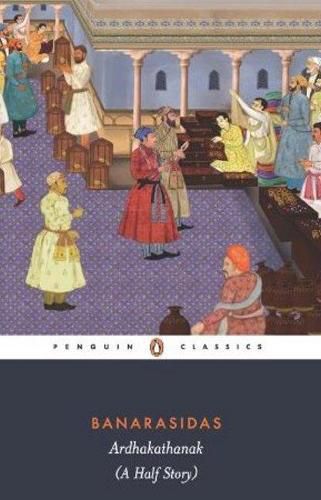Readings Newsletter
Become a Readings Member to make your shopping experience even easier.
Sign in or sign up for free!
You’re not far away from qualifying for FREE standard shipping within Australia
You’ve qualified for FREE standard shipping within Australia
The cart is loading…






Poet; philosopher and merchant; Banarasidas had no precedent in literature or tradition that might have inspired him to write his life’s story or guided him in his task. His motivation to write his story was simple: ‘Let me tell my story to all.’ Completed in the winter of 1641; in Agra; Ardhakathanak is the first autobiography in an Indian language. Banarsidas charms us with his transparency and frankness; revealing as much of himself as possible. And he punctuates the fast-flowing narrative of his life every now and then to muse on the nature of human existence. The result is an astonishing account that is more modern than medieval in tone; and free of formulaic conventions and stylized ornamentation. At the end of his ‘half story’; Banarasi becomes as intimate to us as an old friend. We know the ups and downs of his life almost as well as we know our own and we come to identify with his intellectual and spiritual struggles; and perhaps even share them.
$9.00 standard shipping within Australia
FREE standard shipping within Australia for orders over $100.00
Express & International shipping calculated at checkout
Stock availability can be subject to change without notice. We recommend calling the shop or contacting our online team to check availability of low stock items. Please see our Shopping Online page for more details.
Poet; philosopher and merchant; Banarasidas had no precedent in literature or tradition that might have inspired him to write his life’s story or guided him in his task. His motivation to write his story was simple: ‘Let me tell my story to all.’ Completed in the winter of 1641; in Agra; Ardhakathanak is the first autobiography in an Indian language. Banarsidas charms us with his transparency and frankness; revealing as much of himself as possible. And he punctuates the fast-flowing narrative of his life every now and then to muse on the nature of human existence. The result is an astonishing account that is more modern than medieval in tone; and free of formulaic conventions and stylized ornamentation. At the end of his ‘half story’; Banarasi becomes as intimate to us as an old friend. We know the ups and downs of his life almost as well as we know our own and we come to identify with his intellectual and spiritual struggles; and perhaps even share them.